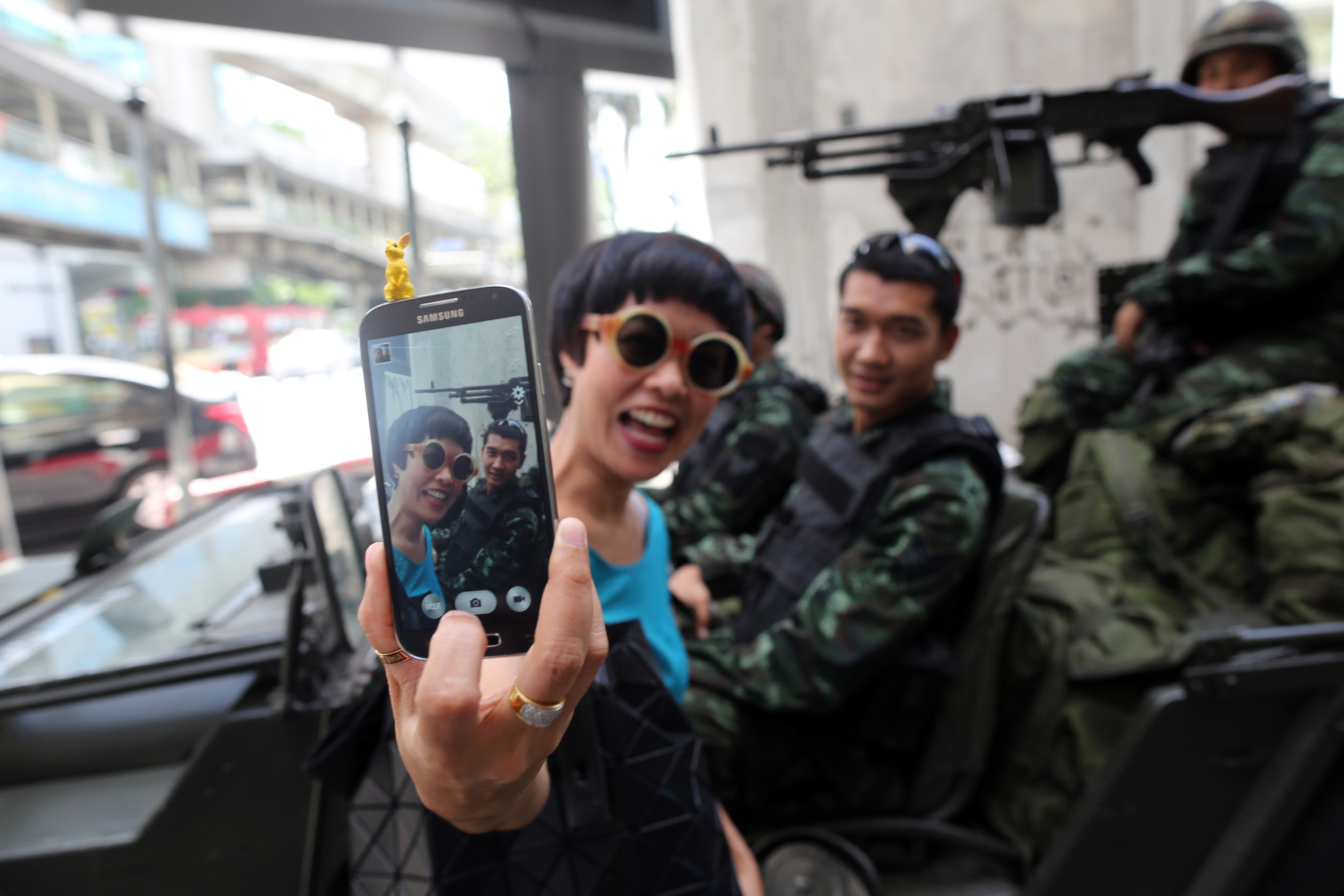Schools were shut, international television stations were off the air and channels broadcast military logos and patriotic music on Friday, a day after Thailand's military seized control following a six-month political stalemate that has sapped economic growth.
Traffic was light in Bangkok as people made their way to work after the army ordered schools and universities closed until May 25. Army Chief Prayuth Chan-Ocha, who announced the coup on national television Thursday, imposed a nationwide curfew from 10 p.m. until 5 a.m. and banned political protests.
The coup, the nation's 12th in eight decades, could provide short-term certainty to markets after months of street protests and upheaval that led to the removal on May 7 of caretaker Prime Minister Yingluck Shinawatra by the Constitutional Court. The military's intervention, though, may not resolve the deep polarization that has taken hold in Thailand over the past decade between the largely rural-based supporters of Yingluck's brother Thaksin Shinawatra, ousted in a 2006 coup, and his royalist opponents.

















With your current subscription plan you can comment on stories. However, before writing your first comment, please create a display name in the Profile section of your subscriber account page.